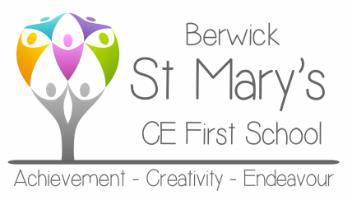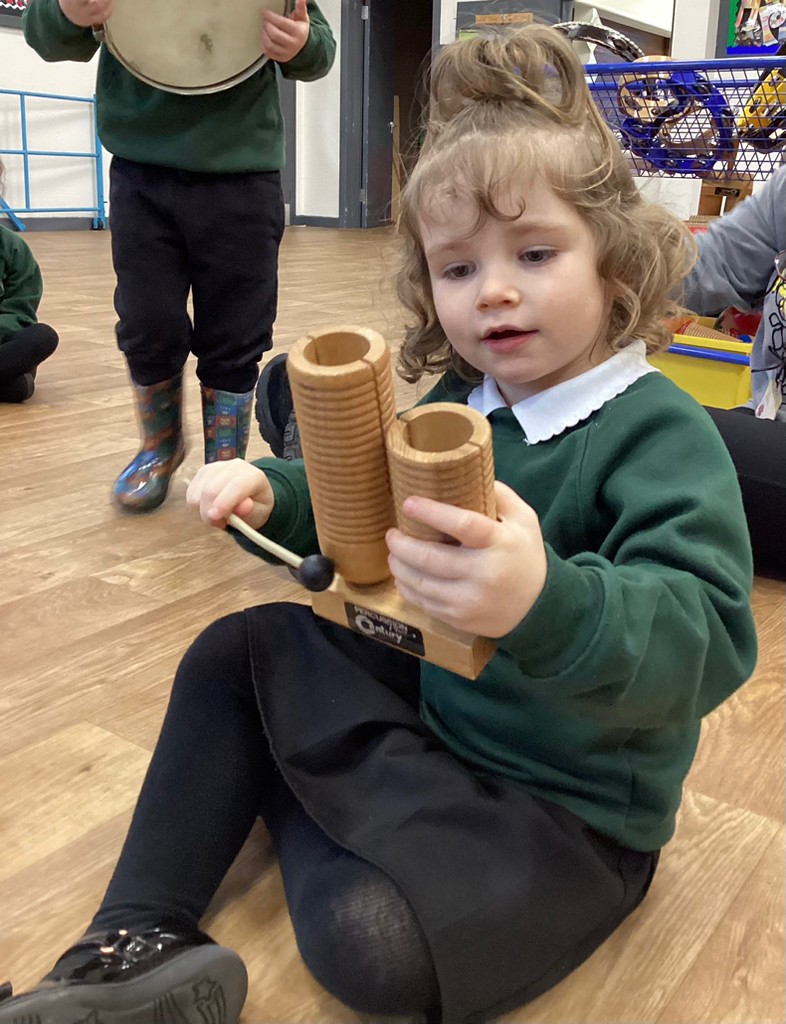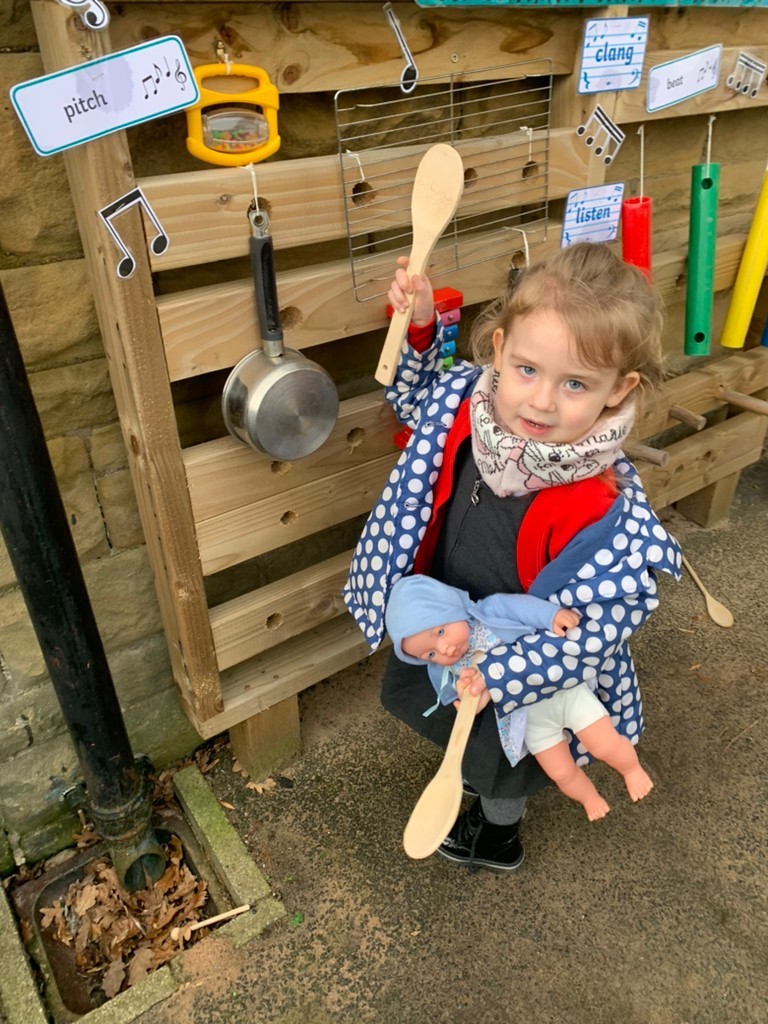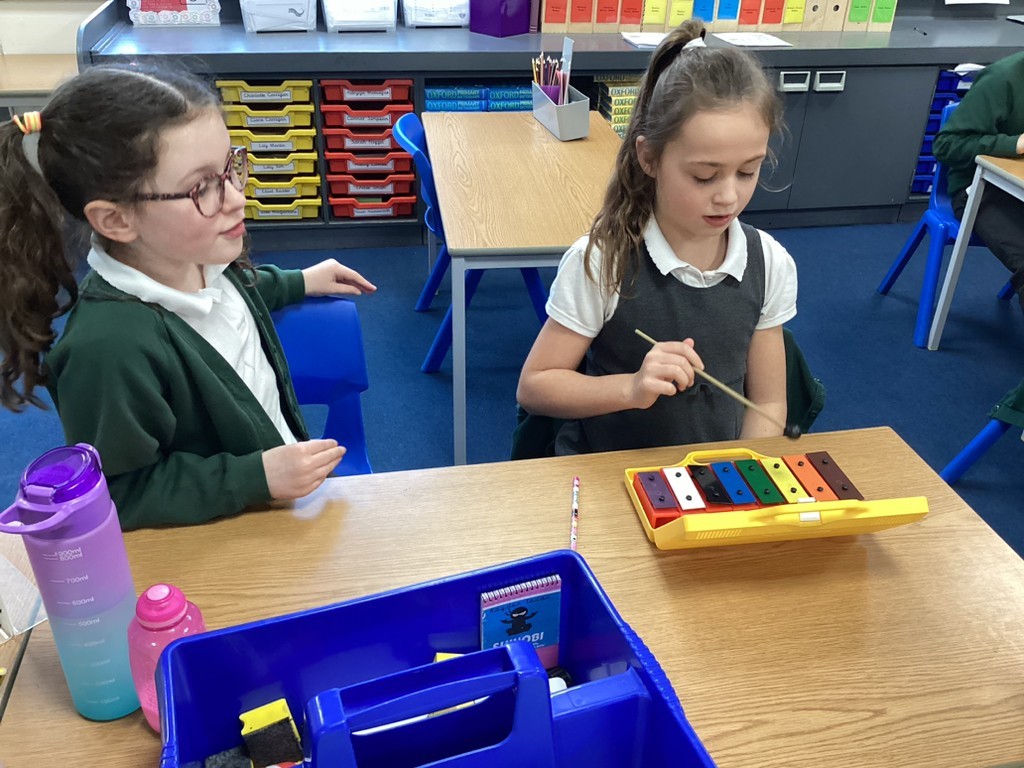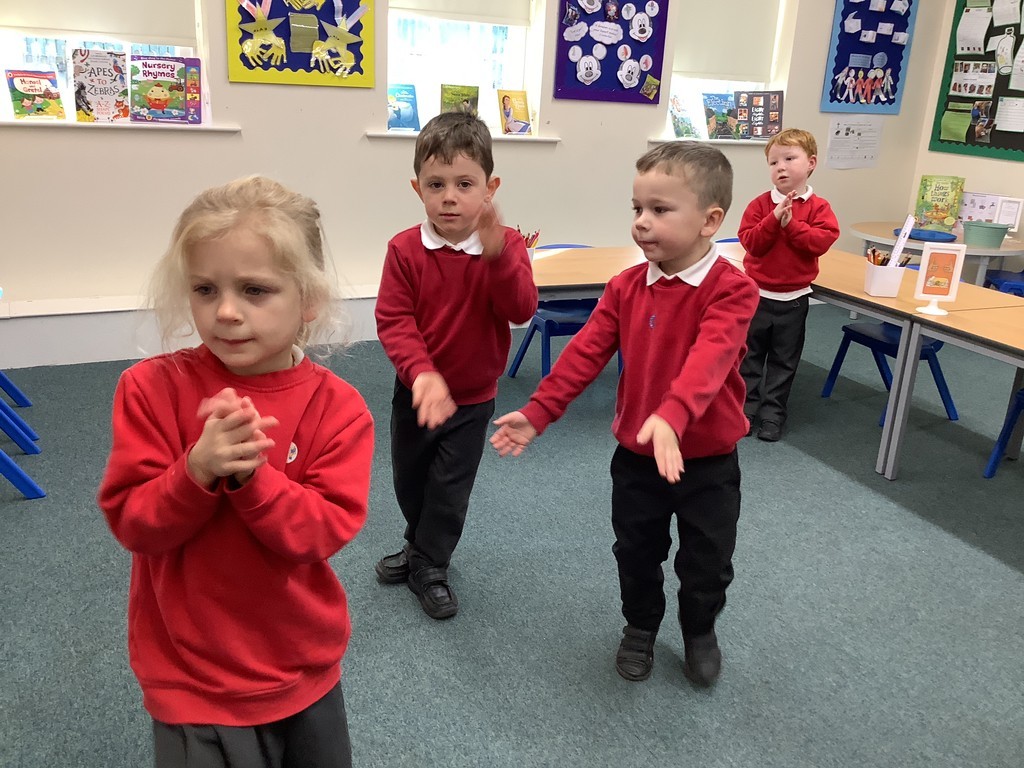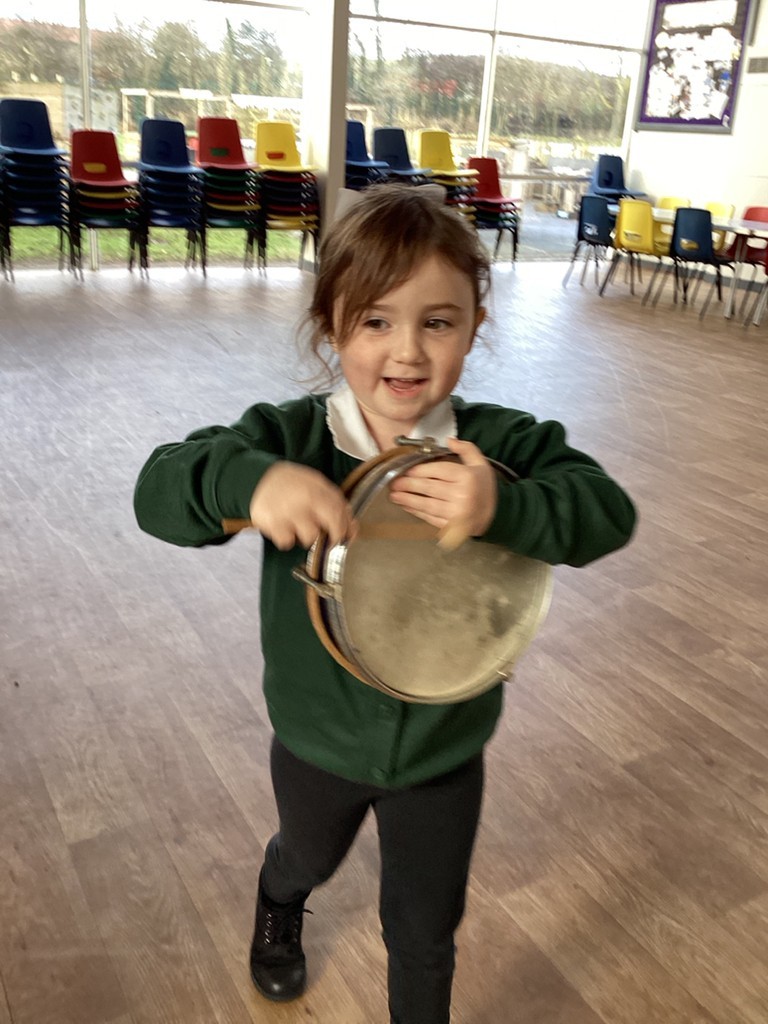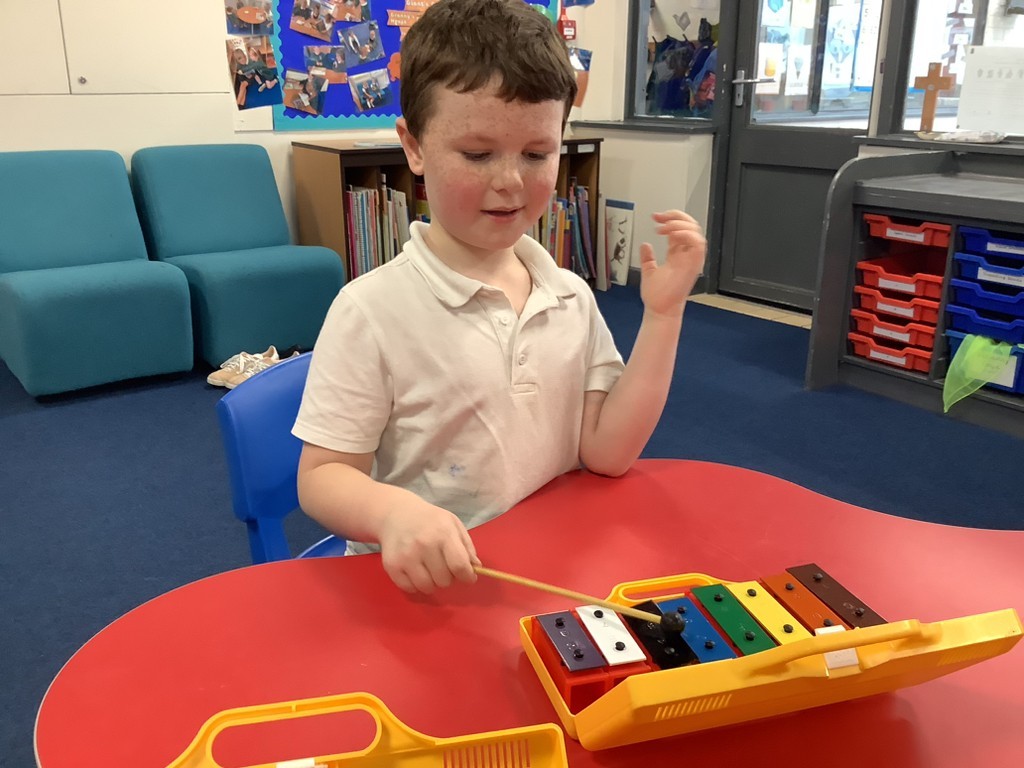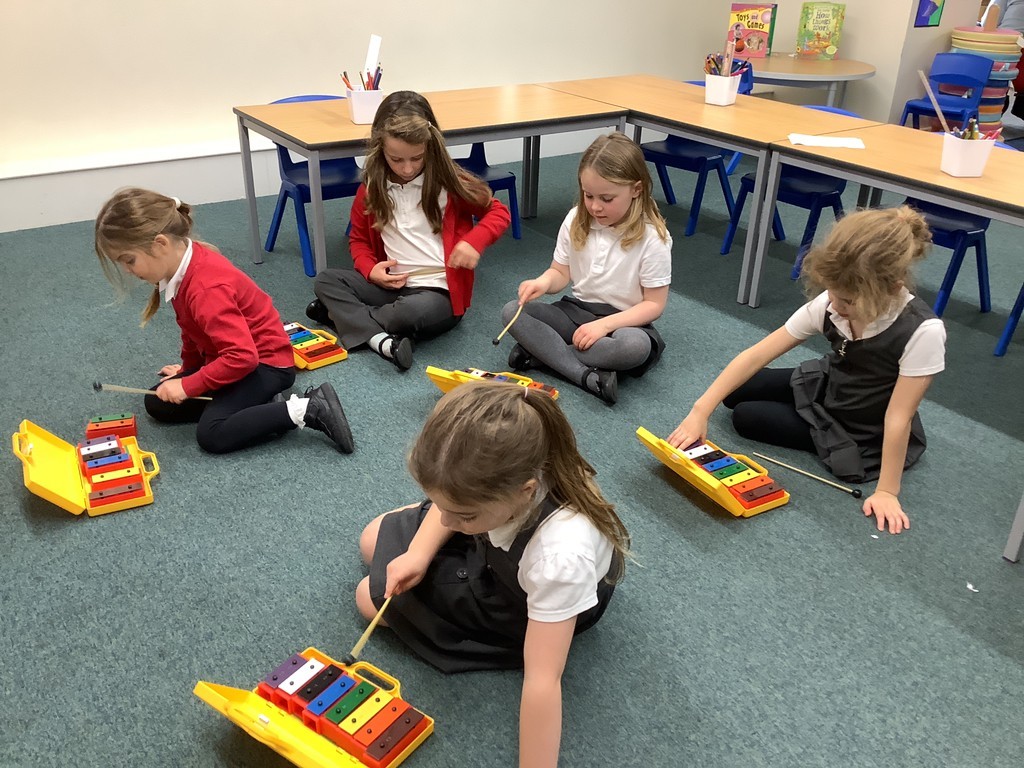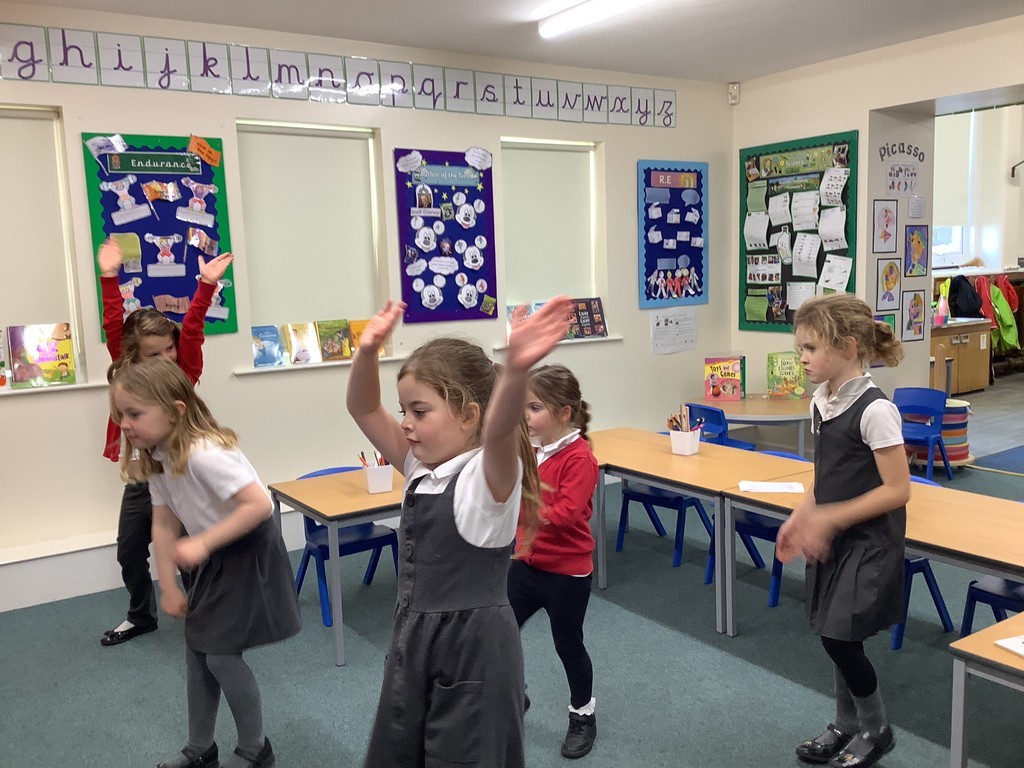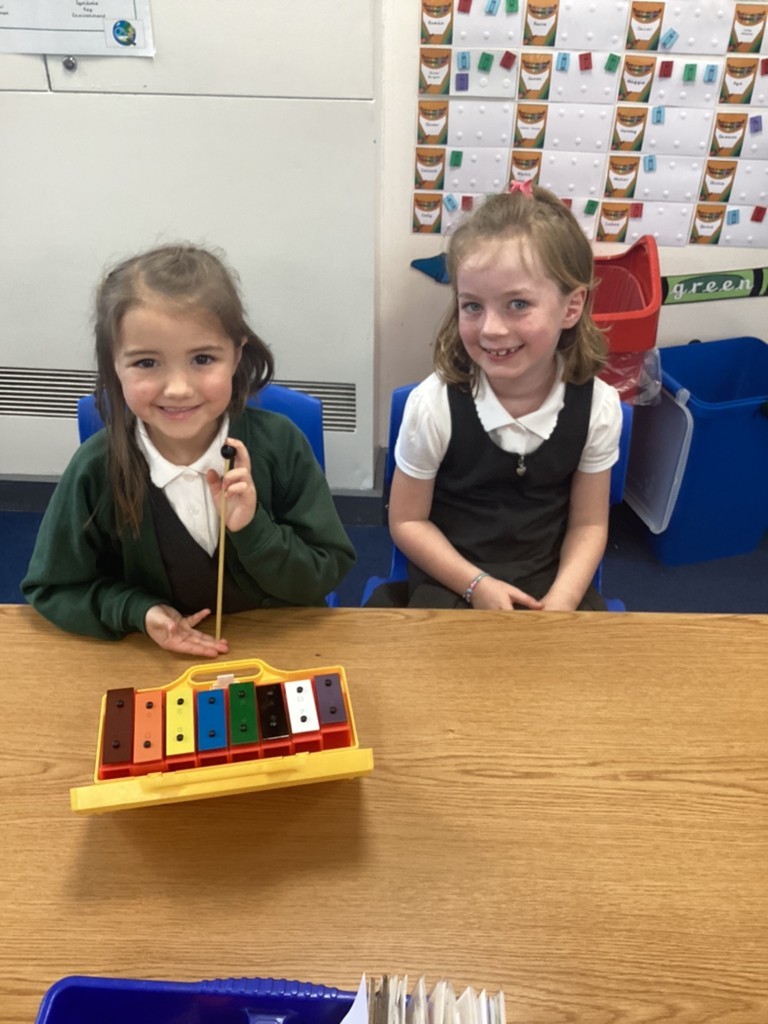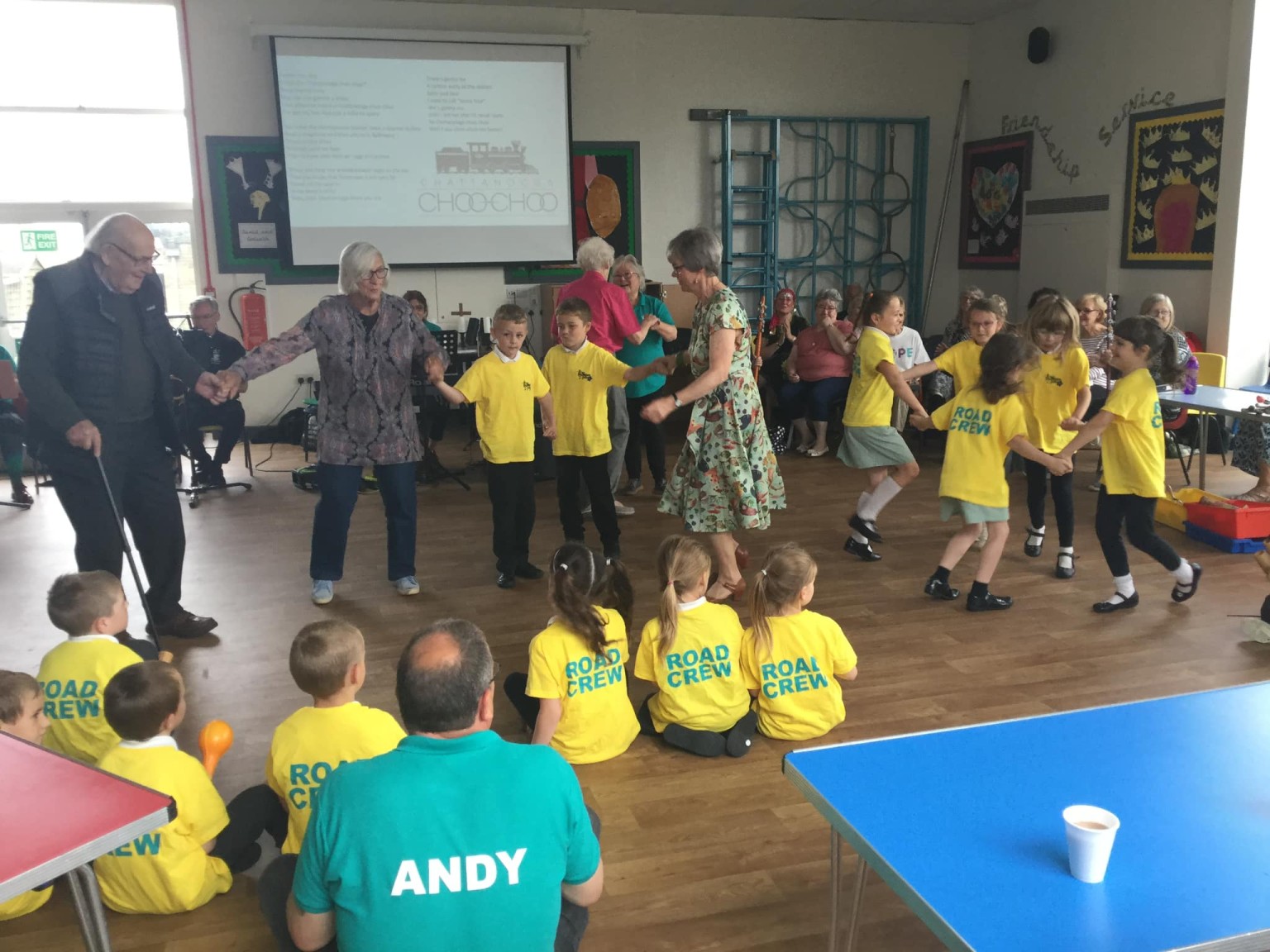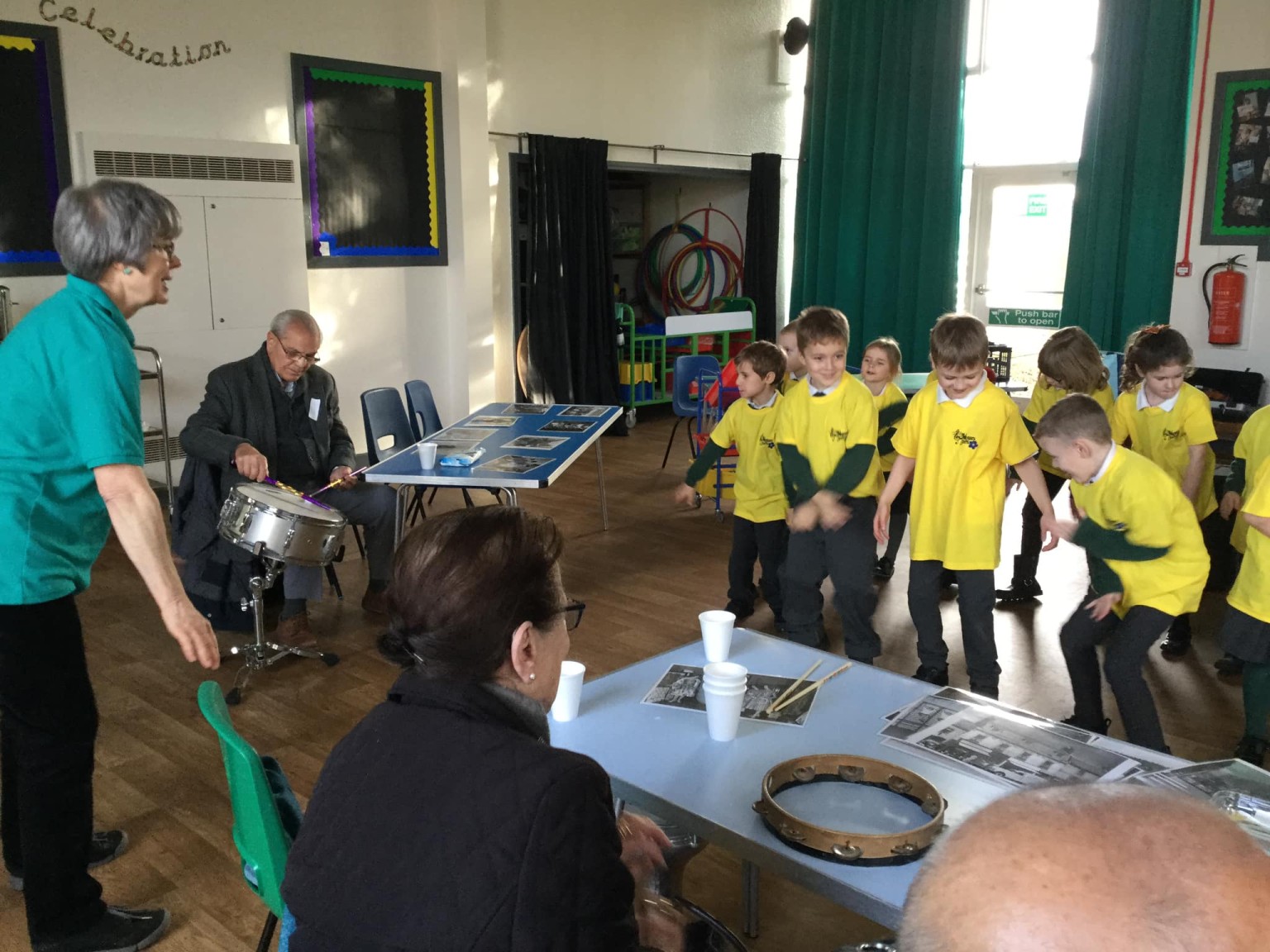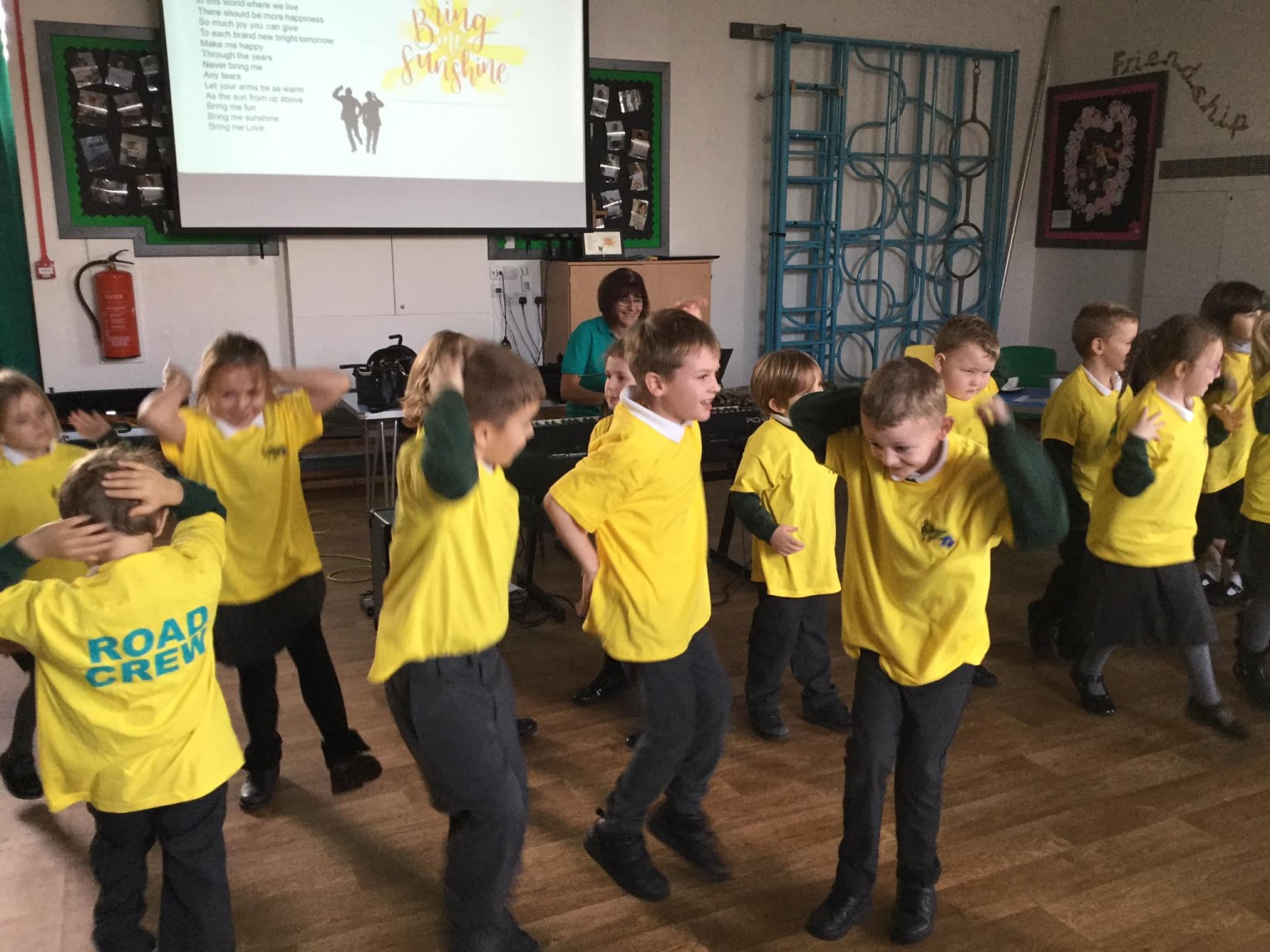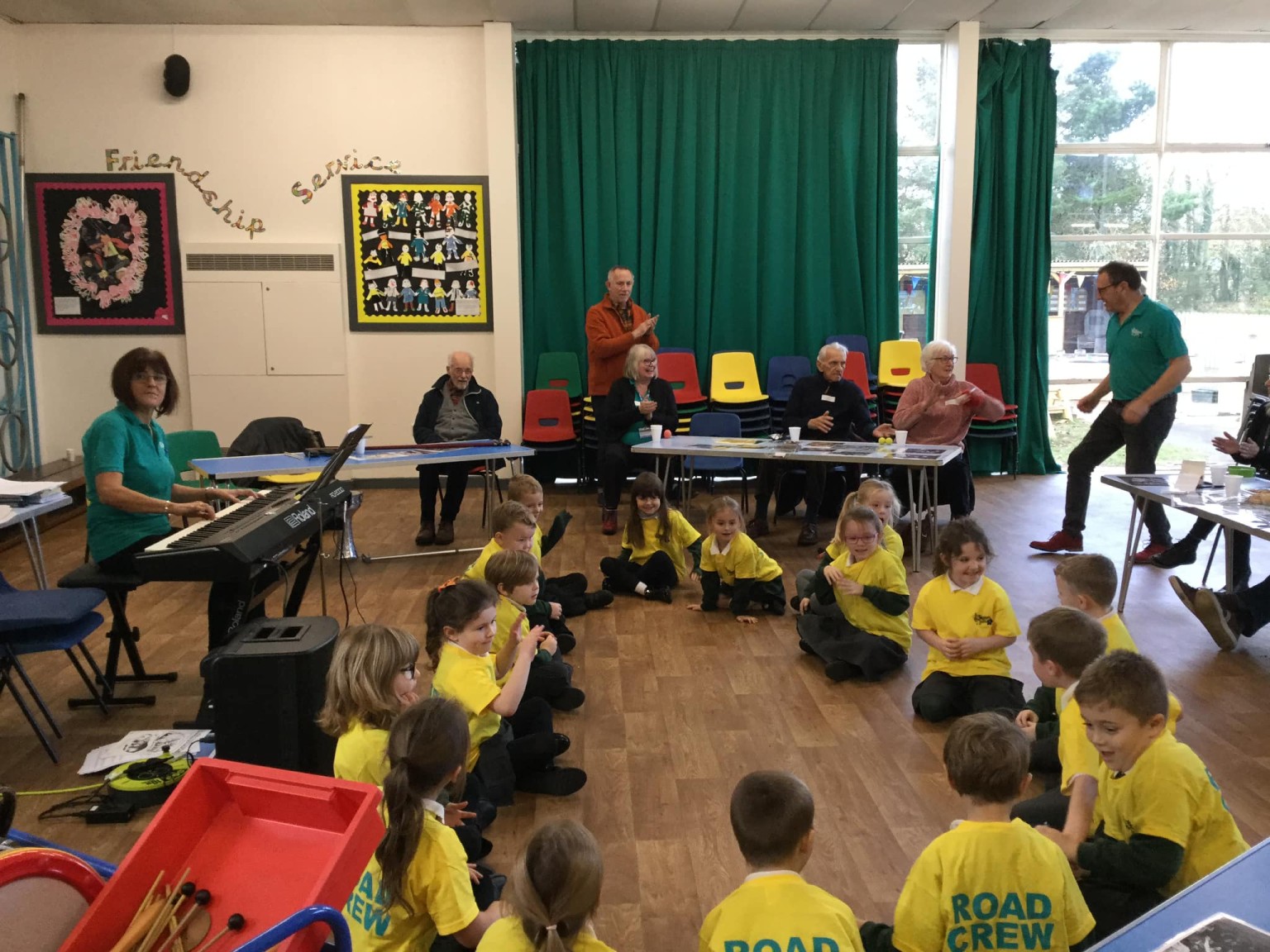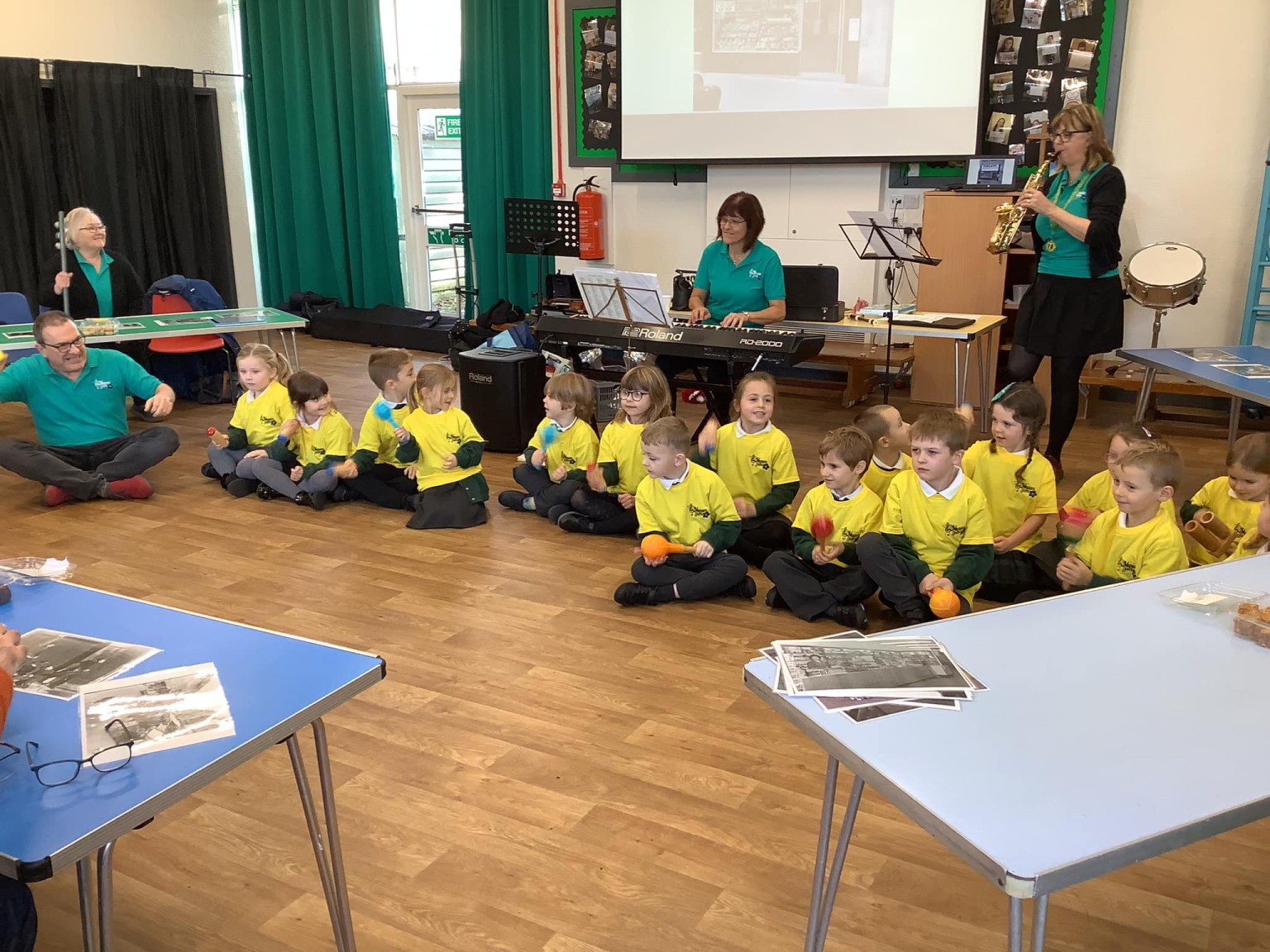‘Sing to him, sing praise to him; tell of all his wonderful acts’
Psalms 105:2.
Our Music lead is Miss Barrett.
As pupils progress, they should develop a critical engagement with music, allowing them to compose, and to listen with discrimination to all types of music. We aim to deliver music lessons that are imaginative, fun and lively and use a combination of teacher-led and child-initiated activities. We want all children to be fully engaged and enjoying themselves as music is embedded across our curriculum to support the teaching and learning in all subject areas.
EarlyYears
In the EYFS music is integrated throughout the school day in all areas of the curriculum. The children learn songs in all areas to consolidate and enrich their learning, for example, nursery rhymes/songs for sounds, subitising in mathematics are continually revisited and extended as the children become familiar with the songs, rhymes, and concepts. Rhyme and music are also embedded to support children’s communication and language development and early phonic skills.
The children in our Early Years Unit experience similar but age-appropriate opportunities to refine and develop their music skills through adult-led and independent learning both indoors and outdoors.
In the EYFS children will enjoy a range of musical activities:
- Games to embed the Interrelated Dimensions of Music through repetition.
- Singing is at the heart of all musical learning.
- Playing instruments with the song to be learnt – tuned/un-tuned classroom percussion and an option to play any band instrument. A sound-before-symbol approach is used but scores are provided as understanding of notation is introduced to the children.
- Improvising with the song using voices and instruments occurs in some Units of Work.
- Composing with the song using instruments occurs in some Units of Work.
- Perform/Share – share what has taken place during the lesson and work towards performing to an audience.
In Key Stage One children will:
- Use their voices expressively and creatively by singing songs and speaking chants and rhymes
- Play tuned and untuned instruments musically.
- Listen with concentration and understanding to a range of high-quality live and recorded music – experiment with, create, select and combine sounds using the inter-related dimensions of music.
In Key Stage Two children will:
- Play and perform in solo and ensemble contexts, using their voices and playing musical instruments with increasing accuracy, fluency, control and expression
- Improvise and compose music for a range of purposes using the inter-related dimensions of music
- Listen with attention to detail and recall sounds with increasing aural memory
- Use and understand staff and other musical notations
- Appreciate and understand a wide range of high-quality live and recorded music drawn from different traditions and from great composers and musicians develop an understanding of the history of music.
Music teaching is detailed in our half termly curriculum maps.
Click here to view the full National Curriculum Programme of Study that we follow for Music.
